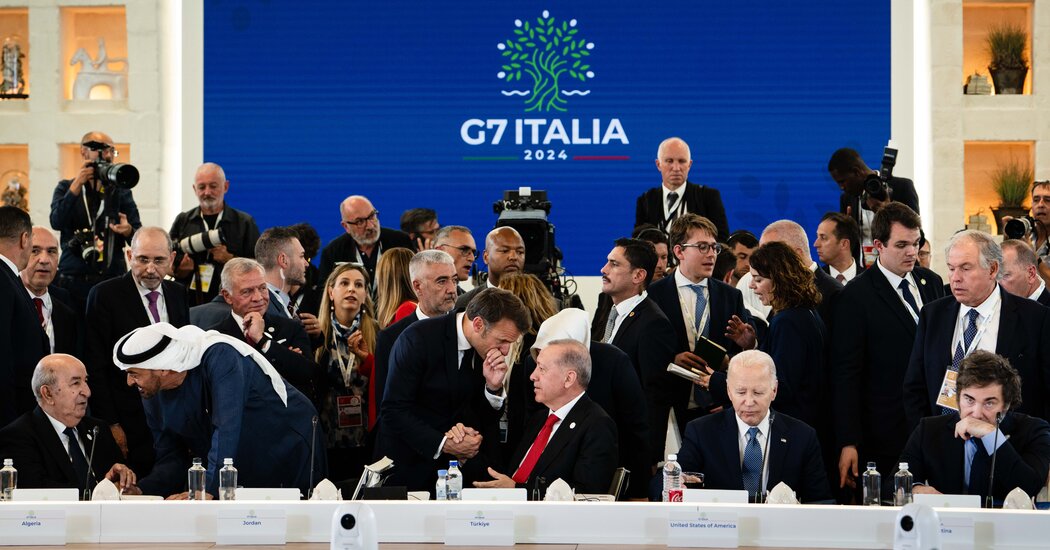
G7 2024: A focus on Africa amid global power shifts
The Fiftieth G7 summit, held from June 13 to 15 in Borgo Egnazia, Italy, saw the world’s seven most powerful democracies convene under the leadership of Italian Prime Minister Giorgia Meloni.
Your go-to source for in-depth coverage of political developments, economic trends, social affairs, and vibrant cultural stories from across the continent.

G7 2024: A focus on Africa amid global power shifts
The summit addressed global issues and set forth a series of key decisions, with a significant focus on Africa, reflecting a shift from the previous year’s summit in Hiroshima.
Unlike previous summits, the G7 2024 extended numerous invitations to African nations and highlighted three major projects aimed at the continent: the Mattei Plan, the Global Partnership for Infrastructure and Investment (PGII), and the Initiative for African Energy Growth.
These initiatives reflect the West’s renewed interest in Africa and its strategic importance in global politics.
The G7 2024 summit, though less publicized due to coinciding with major football tournaments, tackled critical issues such as the Middle East situation, the Russo-Ukrainian conflict, China’s influence, and African development.
Notably, this year’s summit was marked by two unique features: the fragility of several member states’ governments and the unprecedented presence of Pope Francis, who engaged in bilateral meetings with world leaders.
Giorgia Meloni’s Mattei Plan for Africa received validation from the G7. Initially announced in her October 2022 inaugural address and detailed at the Italy-Africa summit in January 2024, the plan aims to invest €5.5 billion in Africa to address root causes of migration by funding local projects.
The plan is also part of Italy’s broader strategy to strengthen ties with Africa, underscoring Italy’s intent to be a key player in the emerging multipolar world.
The G7 also reinforced the Global Partnership for Infrastructure and Investment (PGII) and the Global Gateway, initiatives launched in 2022 by the G7 and in 2021 by the European Union, respectively.
These projects, worth $600 billion over five years, aim to finance sustainable infrastructure, expand access to information technology, promote gender equity, and upgrade global health systems.
The Global Gateway, with €300 billion in funding, allocates half its resources to African development, focusing on fiber optics, health, and green energy projects.
These Western initiatives are designed to counter China’s growing influence, particularly through its Belt and Road Initiative.
The PGII and Global Gateway represent strategic moves to rival China’s investments in the developing world, ensuring the West’s presence and influence in these regions.
In conclusion, the G7 2024 dedicated a substantial agenda to Africa, accelerating the operationalization of the Mattei Plan, PGII, and Global Gateway.
These projects, though ostensibly aimed at aiding African development, are deeply entwined with global geopolitical strategies, positioning the West against China’s expanding footprint in the Global South.
I am an avid African news observer, and an active member of Daily Mail Africa.
I’m Passionate about staying informed on diverse topics across the continent,
I actively contribute to publishing on political, economic and cultural developments in Africa.